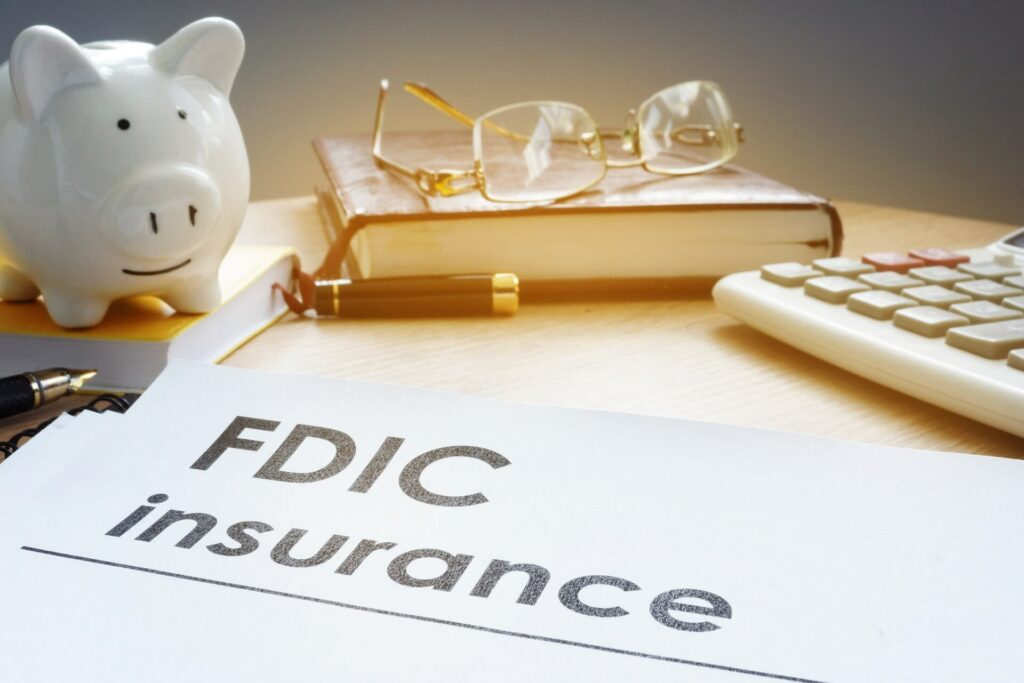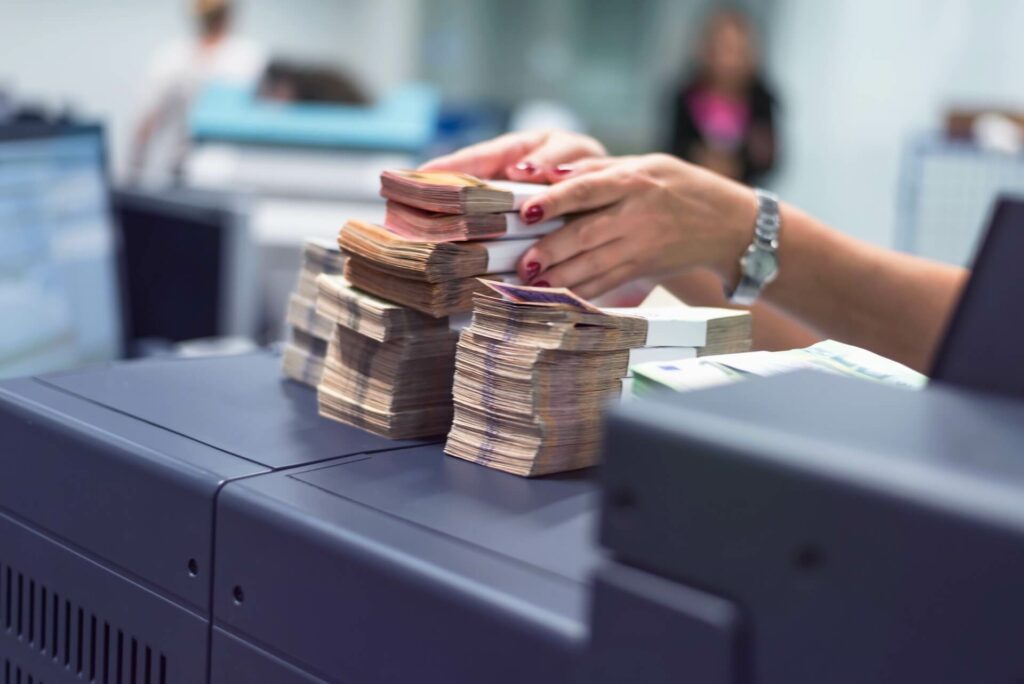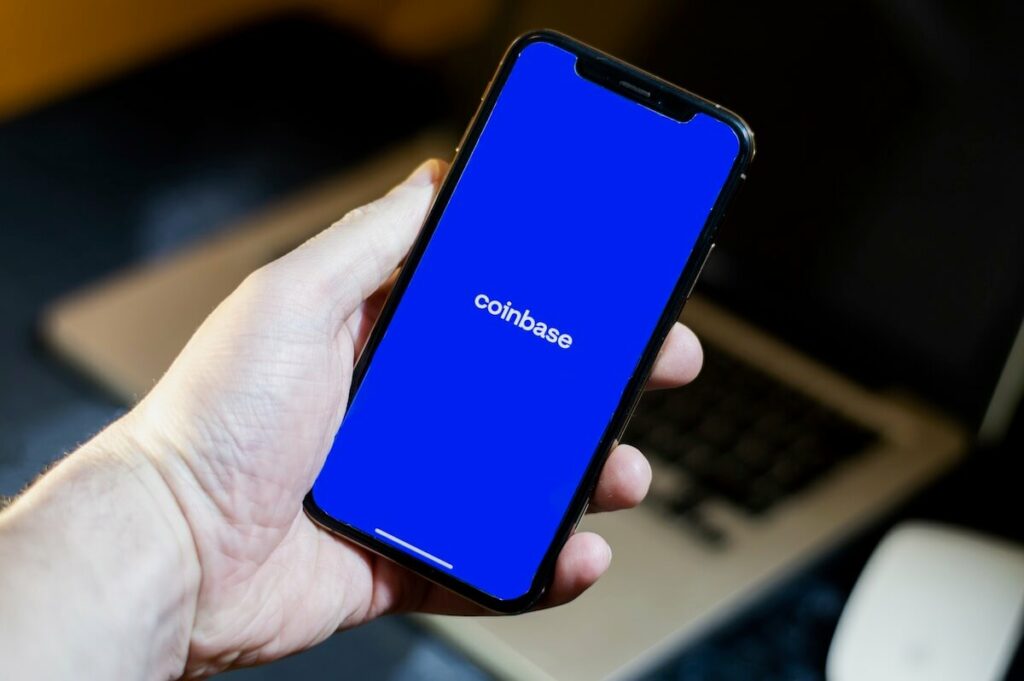Coinbase is one of the best cryptocurrency exchanges in the world, allowing users to buy and trade almost 100 different cryptos. While the platform is very safe to use, trading digital assets can be risky. That’s why many are wondering – is Coinbase FDIC insured?
Coinbase is only partly FDIC insured, as the government agency can only insure resources stored offline in cold storage. However, Coinbase has its own insurance policy that will cover any potential losses users might suffer due to an online breach, keeping their digital assets secured.

You Won't Believe What Happens When You Click This Link - Earn THOUSANDS in FREE Crypto Now! 🤑
This crazy new website is giving away FREE cryptocurrency like Bitcoin and Ethereum just for completing simple surveys, offers, and watching videos! All you have to do is click the link below, sign up for a free account, and start earning points towards REAL crypto rewards!
Some users are reporting earnings of over 5,000 points (worth up to $50!) credited in just minutes after signing up. That's right, you can get PAID to browse the internet! 💰
Don't miss out on this limited time opportunity to score BIG on free crypto! Click below and join now before it's too late.
Act fast - this is too good to be true!
While having insurance is an excellent safety net from potential breaches, you can never be too safe when using crypto exchange platforms. Thankfully, there are plenty of ways that you can increase your Coinbase account’s security and prevent unauthorized access.
Coinbase Is Only Partly FDIC Insured
Unlike traditional banking accounts, cryptocurrency exchange platforms are not legally backed by governments, meaning you’ll often be left to handle problems on your own. However, Coinbase is still partly insured by the Federal Deposit Insurance Company (FDIC). What does this mean exactly?
For starters, the FDIC and other government agencies can’t insure any cryptocurrency you have on the platform. Thankfully, Coinbase stores 98% of all the user funds offline in what is known as cold storage, and these resources can be insured by the FDIC.
Each user is insured for up to $250,000, meaning you won’t have to worry about losing your money once it’s put in cold storage. If the bank that holds these resources has a security breach, the assets that were taken from these accounts will be reimbursed.
Where Does the Coinbase Cryptocurrency Exchange Keep My Insured Funds?
As I just mentioned, the FDIC doesn’t actually insure the money you have on Coinbase, but all the funds the exchange holds offline in cold storage. That’s why the platform combines balances of its users and keeps these resources in one of several places, including:
- Custodial accounts,
- Liquid US Treasuries investments,
- The US money market funds.
The user’s resources can be kept in either of these forms and may even be split among several places. However, a non-US customer’s funds can only be held in a dedicated custodial account, as the second and third options are only available in the US.
It’s important to note that these resources are kept separately from Coinbase’s own funds, and the FDIC requires the company to maintain detailed records of all its custodial accounts. This ensures your money can’t be used for unlawful purposes or to cover any other expenses made by the company.

Does Coinbase Protect My Online Assets?
While the FDIC can only insure funds stored offline, this doesn’t mean your Bitcoin and other cryptocurrencies won’t be protected. The Coinbase exchange carries crime insurance that will certainly increase the overall security of any funds, crypto coins, and other digital assets you have on the platform.
This policy will also protect the remaining 2% of the fiat stored on the exchange against various cybernetic breaches and theft, ensuring you are appropriately compensated in case of a safety breach. While the FDIC insurance policy can only be used for US dollars, this option covers all the native currencies you regularly deposit on Coinbase and its wallet, including euros and British pounds.
However, the insurance doesn’t cover losses resulting from unauthorized access to your account. In case another user got a hold of your credentials and used them to access the platform, you won’t be compensated for the money or any other digital assets that were lost.
Now that we have gone over both the FDIC and Coinbase insurances, the table below will tell you which policy covers which assets.
| Insurance | Native Currency (Fiat) | Cryptocurrencies | Storage |
| FDIC | US dollar-only | No | Offline |
| Coinbase | US dollar, British Pound, Euro | Yes | Online |
How Can I Increase My Security When Using Coinbase?
If you’re worried about your crypto being misused, there are several ways to make your Coinbase account more secure. For starters, you can enable two-factor authentication. This will require you to provide a verification code each time you log in, in addition to your username and password. I would also highly recommend you to verify your Coinbase account as soon as you get on the platform.
To enable two-factor authentication, you need to:
- Log in to your Coinbase account and click on the “Settings” tab,
- Scroll down to the “Security” section and click on the “Two-Factor Authentication” link,
- Click on the “Enable Two-Factor Authentication” button and follow the instructions.
Keeping your Coinbase login details in a safe place is another way to prevent your crypto coins from getting stolen. You should also avoid disclosing your account details to anyone you don’t trust completely, as this counts as unauthorized access that’s not covered by any of the insurance policies the platform provides. This also means you should stay alert for potential phishing, even when you’re receiving mail from an email that seems legitimate.
Lastly, if you’re not actively trading any crypto and are planning on storing your assets for the long term, I highly recommend that you use the Coinbase Vault. While cashing out on Coinbase can be instantaneous, withdrawing money from a vault requires several email approvals. The process also has a 48-hour delay, allowing you to prevent unauthorized withdrawals before they can be completed.

Is Coinbase Safe to Use?
While Coinbase may not be completely insured by the FDIC, it is still a reliable and safe platform to buy and sell cryptocurrencies. Coinbase also offers insurance for both crypto and fiat stored on its site, which should provide some peace of mind to users who are concerned about the security of their funds. Once you’ve gone through all the safety precautions, feel free to buy some cryptos or start learning how to stake on Coinbase.